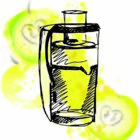Trending
All-Natural (adj.): Hollow advertising or helpful label?
March, 2018
When we see the phrase “all-natural” on our food, we usually associate that product with health—even a kind of purity. After all, if it comes from nature, it must be good, right? But this isn’t necessarily the case. In order to sell a food product as all-natural, manufacturers have to adhere to a strict set of rules that keep them honest, but these rules make no health guarantees. By learning the rules though, consumers can know exactly what they’re getting into when it comes to buying all-natural products.
The Legal Definition
According to the Canadian Food Inspection Agency, the federal agency responsible for enforcing our food labeling laws, the term “all-natural” can only legally be used by products that follow a specific set of guidelines.
First of all, any food item that claims to be all-natural must be free of any added vitamins, nutrients, artificial flavours or food additives. On the flip side of this rule, all-natural products cannot have any significant portion of their original composition removed. Coffee, for example, might be sold as an all-natural product, but decaffeinated coffee, which has had a significant portion of the original product removed, cannot be considered natural. All-natural products must be sold more or less as they exist in nature.
Furthermore, the Canadian Food Inspection Agency rules dictate that all-natural food items cannot have undergone any kind of alterations that have changed their chemical, biological or physical form. That is, processed foods and foods created chemically in a lab can never be called “all-natural.”
Are they healthy?
It’s tempting to think that everything that is natural is also good for us, but this is simply not true. The Canadian Food Inspection Agency forbids the claim, or even the implication, that “all-natural” products are nutritionally superior to their processed counterparts. The connection between a natural product and a healthy product is simply too situational, and so claims that natural products have inherent health benefits are not allowed.
This is an attempt to protect consumer safety. For example, a stick of butter might be described as all-natural, as it contains only natural milk-fat. But butter isn’t inherently a healthy food. We know that using too much of it can lead to health complications. Your own research and judgment are the best indicators of which foods are healthy, and which are not.
It’s also worth keeping in mind that all-natural foods are not necessarily organic unless otherwise indicated. As such, they are not guaranteed to be GMO-free or free of chemical pesticides or fertilizers. Similarly, all-natural meat products aren’t necessarily free-range, antibiotic free or hormone free. These common health labels all mean different things, and therefore must be indicated separately.
Exceptions to the Rules
Just because something is labeled as all-natural doesn’t mean that it is free of all additives. Canadian food laws allow the addition of preservatives and flavouring to all-natural products as long as those preservatives and flavourings are all-natural themselves. Just like the food items to which they are being added, the additives of an all-natural product cannot have their taste or chemical properties altered in any way. Natural flavours are things like salt, citric acids, and some sugars. They change the taste of the product, but not its all-natural status.
There is, however, one exception to the rule that nothing can be removed from all-natural products: water. Food items are regularly dehydrated as a method of preservation, and so they can still be sold as all-natural.
Did You Know?
While the Canadian Food Inspection Agency’s rules are strict, they don’t always have a far reach. When purchasing foreign products, be mindful that labeling laws aren’t the same everywhere, and the phrase “all-natural” might not be true by Canadian definitions.
Fun Fact
There is no legal distinction between a label that reads “natural” and one that reads “all-natural.” However, there is a way to tell if a product is at least partially natural. Labels with the phrase, “containing nutritional ingredients” indicate the presence of both natural and manufactured ingredients.












